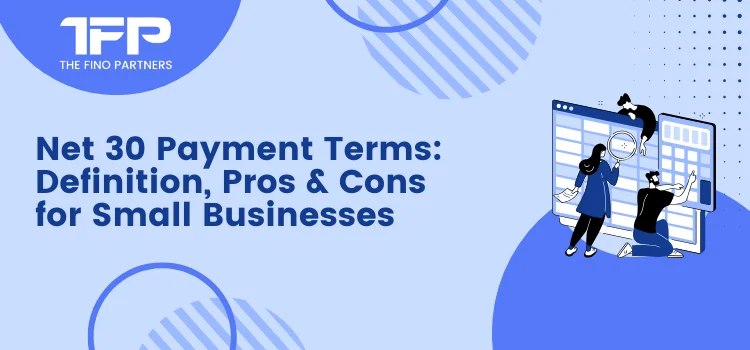Flexible payment terms have become a necessity for maintaining cash flow and proper relationships with your clients. A common option you might know about is "Net 30" payment terms. In reality, in their invoices, approximately 60% of U.S. businesses provide their clients net 30 terms, based on a recent research. However, what exactly does net 30 mean and could it be right for your small business? Let us find out in this article.
What Are Net 30 Payment Terms?
Net 30 is simply the time a person can take to pay the invoice in full. With net 30 terms you are basically saying "You have thirty days from the day I issue this invoice to pay for the item or service I have provided."
For instance, in case you deliver a service or product right now to a customer and they give you an invoice, the client would need to pay out within thirty calendar days of the invoice date. This setup is normally found in B2B transactions or service-based industries where flexibility in payment timelines is required.
Pros of Net 30 Terms for Your Small Business
Offering net 30 terms can help your company in many ways, particularly in case you wish to retain current clients or attract new ones.
1. More Clients, More Sales
Among the greatest advantages of net 30 terms is you offer more flexibility to clients which may result in more business. Giving your clients a 30 day window to pay appeals to those who do not keep money in hand for a one-time payment. This flexibility could be appealing to new or smaller companies that encounter tight cash flow.
In return, clients who appreciate this are more likely to select you over competitors that require immediate payment. This will help you develop a clientele and boost sales.
2. Stronger Business Relationships
Giving clients flexible payment terms can increase trust and rapport with them. Showing you understand their financial needs increases your chance of a long-term working relationship. This goodwill could result in repeat business, more referrals and better reputation in your industry.
3. Helps Build Business Credit
Net 30 terms not only benefit your clients but they can also help you build your business credit. By giving credit to clients and maintaining records, you develop a credit history for your business. This history can come in handy if you ever have to borrow money or get other kinds of financing later on.
Many businesses will in addition use net 30 terms to develop credit with vendors. For instance, for those who have a net thirty account with a supplier and pay on time, those payments could improve your business credit score.
The Cons of Net 30 Terms for Your Small Business
Net 30 terms come with some drawbacks, though they are an excellent way to boost your company and draw in clients.
1. Delayed Payments
The biggest downside to net 30 terms is you are essentially lending your clients a short term loan. You offer your services or products now and get paid later, which could be bad if clients don't pay on time.
This particular delay of payments can create cash flow issues for small businesses which use ordinary payments to cover operating costs including salaries, inventory, and rent. Late payments may even drain your money reserves, causing you to dip into other reserves or even borrow money to cover shortfalls.
2. Risk of Non-Payment
Not all clients will pay up within the thirty days promised. They might not even pay any more. This particular danger of non-payment could be particularly damaging to small businesses that lack resources to pursue legal action or collections.
Assessing a client's payment history and creditworthiness is critical before providing net 30 terms to him. You might actually ask for an initial deposit or even partial payment up front to hedge the risk.
3. Administrative Burden
Managing net 30 terms means more work for your business. You will need to monitor invoices arriving, track deadlines and also follow up with clients if payments are late. This particular administrative burden may be time consuming in case you lack an accounting department or bookkeeping program to automate these duties.
Final Thoughts
Net 30 payment terms offer a useful tool to draw in clients and develop long term relationships even though they carry some risks. For small businesses, offering net 30 must be based on cash flow stability, client reliability and industry norms. You can weigh the pros and cons and make the right decision for your business to keep your finances healthy.
For all your accounting and financial management requirements, consult the Fino Partners today.
Read Also The Pros and Cons of Outsourced Bookkeeping for Medium-Sized Businesses



























